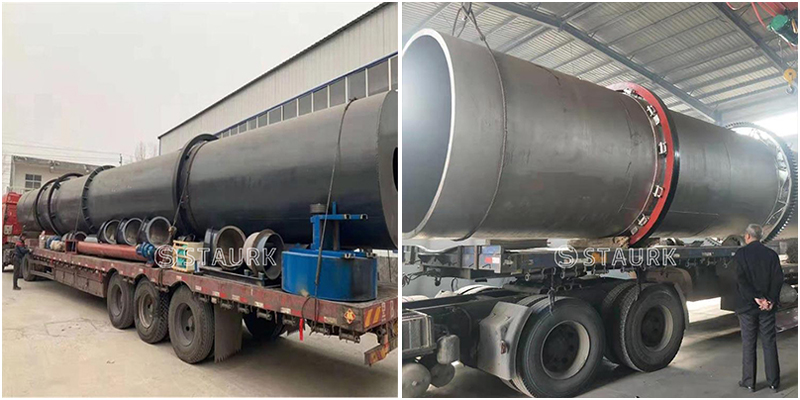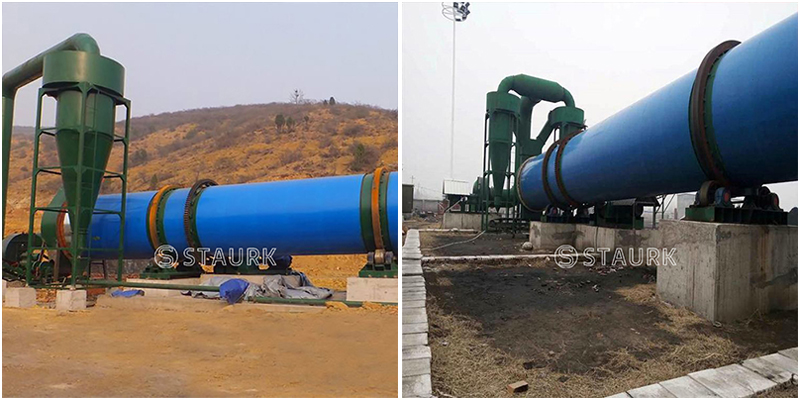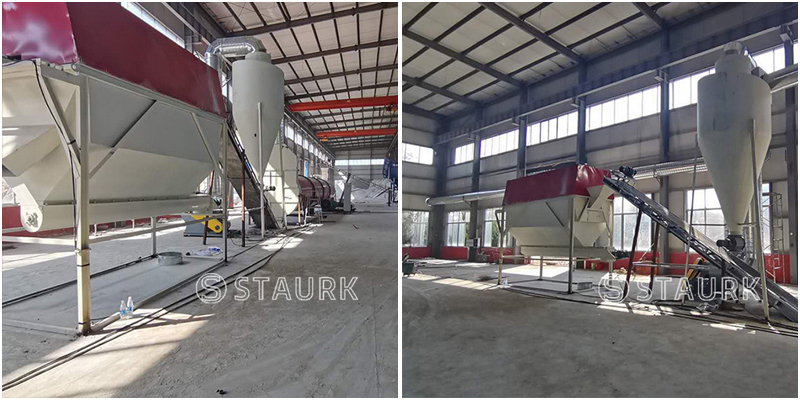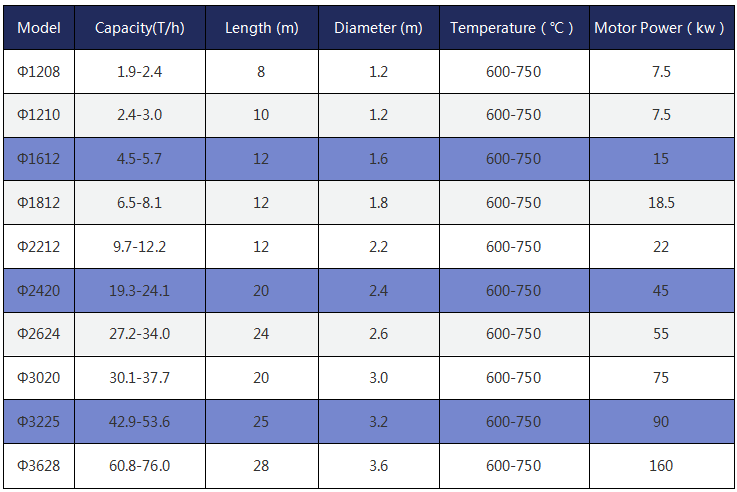1.The dried wet material is sent to the hopper by a belt conveyor or bucket elevator, and then enters the feeding end through the feeding pipe through the feeding machine of the hopper.
2.The inclination of the feeding pipe should be greater than the natural inclination of the material so that the material can flow smoothly into the dryer.
3.The dryer cylinder is a rotating cylinder slightly inclined to the horizontal.
4.The material is added from the higher end, and the heat carrier enters from the lower end, and it contacts the material in countercurrent, and there is also the heat carrier and the material flow into the cylinder together.
5.With the rotation of the cylinder, the material moves to the lower end under the action of gravity.
6.When the wet material moves forward in the cylinder, it directly or indirectly receives heat from the heating medium, so that the wet material can be dried, and then sent out through a belt or screw conveyor at the discharge end.
7.A copy board is installed on the inner wall of the cylinder. Its function is to pick up and scatter the materials to increase the contact surface between the materials and the airflow, so as to increase the drying rate and promote the advancement of the materials.
8.The heating medium is generally divided into hot air, flue gas and so on.
9.After the heating medium passes through the dryer, a cyclone dust collector is generally required to capture the materials carried in the gas.
10.If it is necessary to further reduce the dust content of the exhaust gas, it should be discharged after passing through a bag filter or a wet dust collector.





